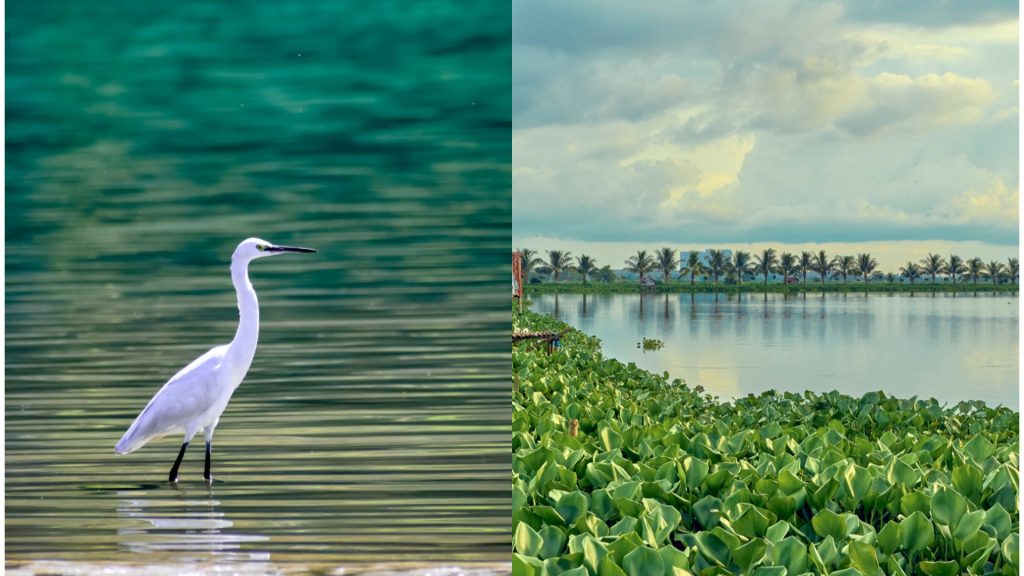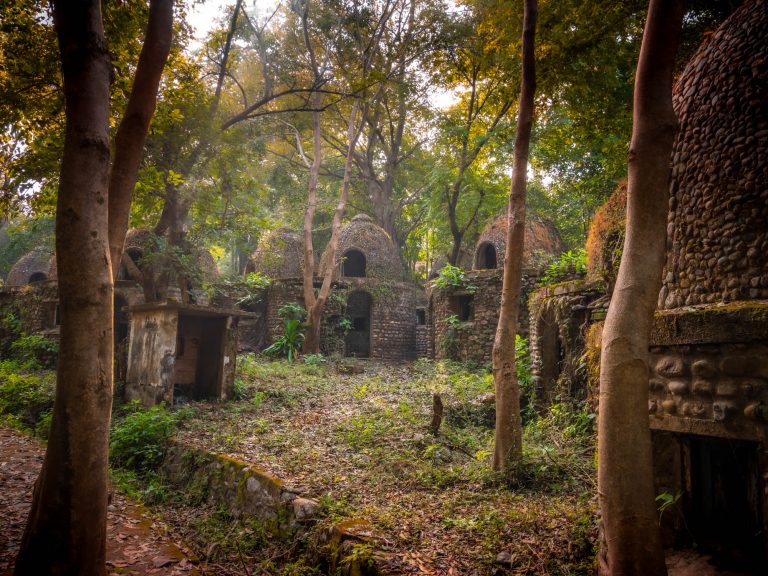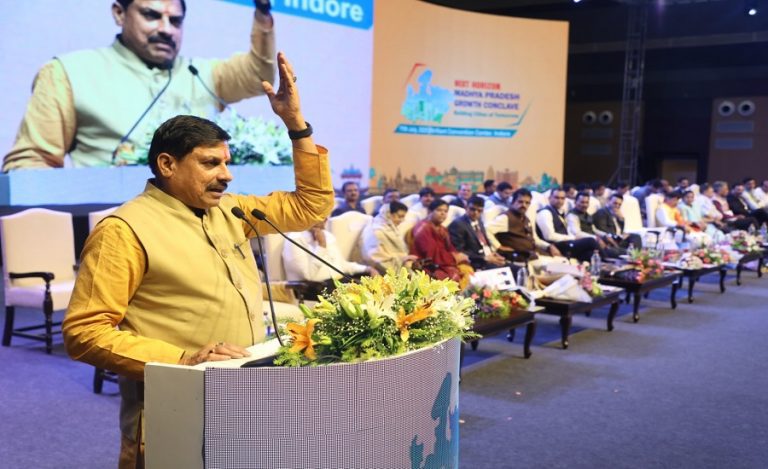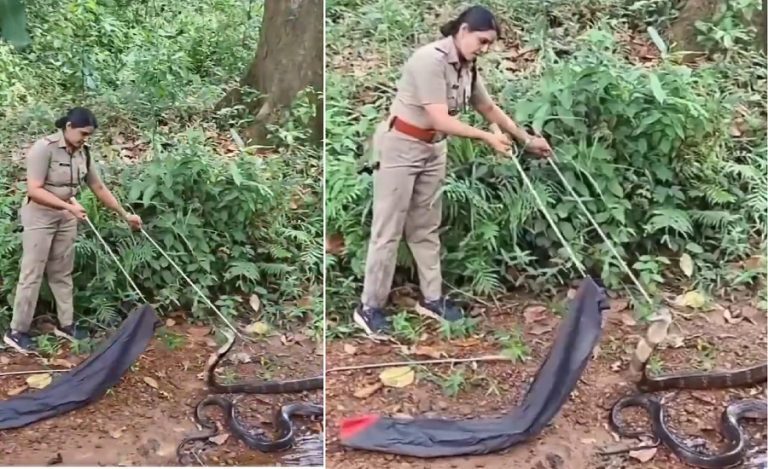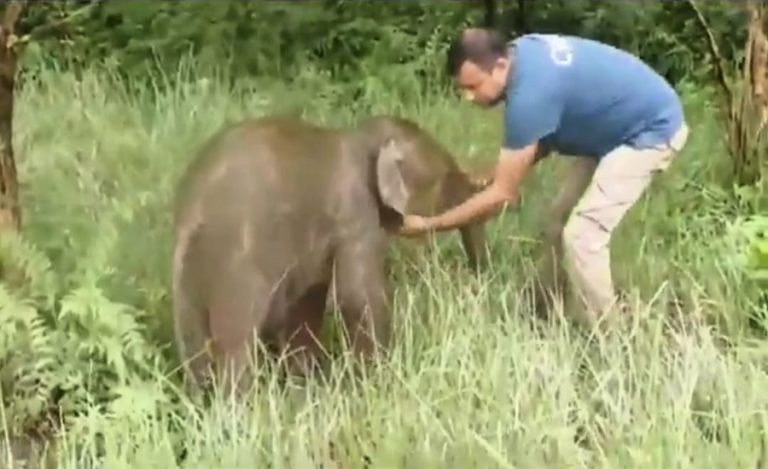Today, February 2, is World Wetlands Day and the theme this year is ‘Wetlands Action for People and Nature’. It aims to highlight the importance of actions to conserve and sustain wetlands.
Wetlands are the region where water covers the soil for an extended period of time. It produces the ideal condition for the growth of highly adapted plants and species. They are the primary sources of water, natural buffers against floods and droughts for many. Most importantly, wetlands reduce the impact of climate change. They are the key to disaster risk reduction, water and food security, climate change mitigation and biodiversity conservation in our country.
Indian Masterminds spoke to forest officers, Ankit Kumar, IFS, and Dharm Singh Meena, IFS, about the importance of this year’s theme and its practical implementation on the ground.
KIDNEYS OF AN ECOSYSTEM
IFS officer Ankit Kumar, who is the DCF CAMPA, Department of Environment and Forest, Arunachal Pradesh, said that wetlands are called the ‘kidneys of an ecosystem’ because they help in cleaning and filtering the polluted waters, stabilizing the water supplies, protecting the shorelines, and recharging the groundwater aquifers.

“Wetlands act as ‘natural carbon sinks’ and store more carbon than any other ecosystem. Thus, they also act as climate regulators. They are ‘nurseries of life’ as they support rich biodiversity of plants, indigenous and migratory avifauna, amphibians among others. They are, thus, integral to the survival of all forms of life on the planet.”
He further informed that wetlands help in management of urban areas by reducing the heat-island effect, reducing the risk of flooding, replenishing the groundwater aquifers, filtering waste, and improving the quality of air.
“They are primary sources of freshwater and provide food, water and shelter to many living organisms and, therefore, the loss of wetlands leads to loss of traditional livelihood. Wetlands also act as buffers against natural disasters such as storm surges, tsunamis, floods and droughts. Mangrove ecosystem in Sundarbans is one example.”
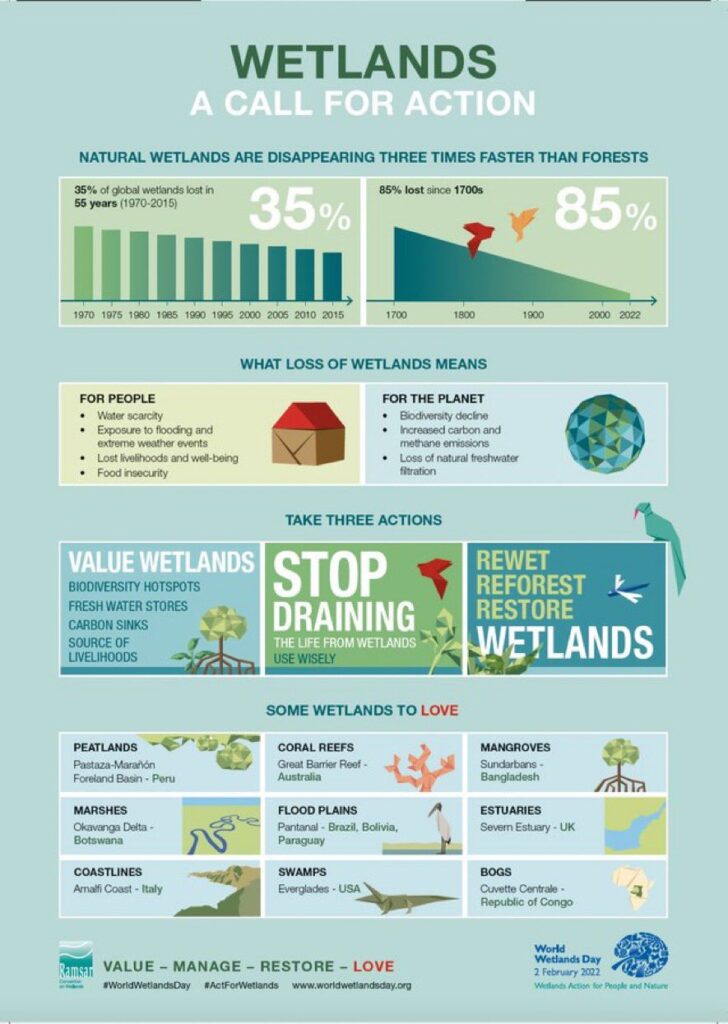
WETLAND CONSERVATION
Mr. Kumar shared two initiatives which can be taken to conserve the wetlands. Firstly, he said that local level integrated wetland management plans need to be formulated.
“Such plans should include the identification of wetlands in the region, site characteristics, ecosystem services provided by that wetland or network of wetlands in the region, present and potential threats, and short and long term interventions needed to revive the wetland, if required.”.
Secondly, he said that the awareness and public outreach campaigns against over-extraction of resources such as sand, boulders, fish and others, as well as for the management of waste from such ecosystems should be conducted.
WETLANDS MINIMIZE CLIMATE CHANGE
IFS officer Dharm Singh Meena, who is the DFO of Narendra Nagar Forest Division, Uttarakhand, shared about the historical Ramsar convention on wetlands.

He said that in 1971 at Ramsar in Iran, there was an international convention on wetlands where it was decided that wetlands, flood areas and rivers are extremely important for aquatic animals, amphibians because these wetlands provide habitat and food to many birds, mammals and other species.
“Wetlands are very important for the conservation of our flora and fauna, and at the same time, they also help in minimizing climate change.”
Further, mentioning the initiatives taken in Uttarakhand for wetland conservation, he said, “In Uttarakhand, we have identified so many wetlands and the government, too, has allocated funds in the budget for the conservation of these wetlands and floodplains. With these funds, various types of conservation schemes are being implemented throughout the state.”

